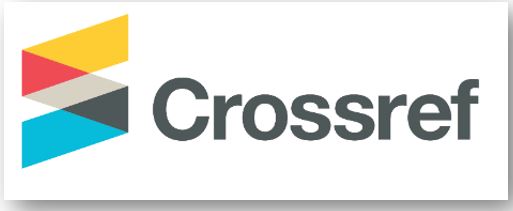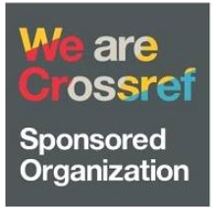The Effect Of Problem-Based Learning (Pbl) Model On Improving Arabic Writing Skills Of Class 1e Students At As-Sa'diyah Dormitory Language Program, Sunan Drajat Islamic Boarding School, Lamongan
DOI:
https://doi.org/10.61231/ijlt.v3i1.390Keywords:
Strategy, Learning, Arabic LanguageAbstract
The research questions of this study are: 1) How is the implementation of the Problem Based Learning (PBL) model in improving the Arabic writing skills of class 1E students of the Language Program at As-Sa’diyah Dormitory, Sunan Drajat Islamic Boarding School Lamongan? 2) What is the effect of the Problem Based Learning (PBL) model on enhancing the Arabic writing skills of class 1E students of the Language Program at As-Sa’diyah Dormitory, Sunan Drajat Islamic Boarding School Lamongan? This study employed a quantitative approach with a quasi-experimental design. The sample consisted of class 1E (experimental group) and class 1D (control group), with a primary focus on analyzing the influence of the PBL model on improving writing skills. Data were collected through observation, interviews, documentation, tests, and questionnaires, and analyzed using a t-test. The findings revealed that: (1) The implementation of the Problem Based Learning (PBL) model was carried out through five core stages: problem orientation, task organization, group investigation, result presentation, and final reflection. These stages encouraged students to be more active, collaborative, and skilled in composing Arabic texts in a structured and contextual manner. (2) The PBL model had a significant impact on improving Arabic writing skills, as evidenced by the increase in the experimental group's average pretest score from 69.00 to 78.65 in the posttest, with a gain of 9.65 points. The t-test result showed a t-count value of 9.443, which was greater than the t-table value of 2.110 at a 0.05 significance level, and a p-value of 0.000 < 0.05
References
Ahmadi, Maswan dan A. Fajar Awaluddin. “Urgensi Bahasa Arab sebagai Bahasa Internasional dalam Pendidikan Islam.” Atta'dib: Jurnal Pendidikan Agama Islam, vol. 5, no. 2 (2023).
Al-Rafi’i, Mushthafa Shadiq. “Meningkatkan Hasil Belajar Kosakata Bahasa Arab: Pengaruh Metode Problem Based Learning Abad 21.” Nusantara: Jurnal Pendidikan Indonesia, vol. 4, no. 2 (2024): 371-382.
Arikunto, Suharsimi. Prosedur Penelitian: Suatu Pendekatan Praktik. Jakarta: Rineka Cipta, 2010.
Edison, Alfha. Model Problem Based Learning Solusi Meningkatkan Prestasi Belajar. Lombok Tengah: Pusat Pengembangan Pendidikan dan Penelitian Indonesia, 2023.
Lubis, Maulana Arafat, dan Nashran Azizah. Pembelajaran Tematik SD/MI. Jakarta: Kencana, 2020.
Luthfiana, Novi. “Pengembangan Model Problem Based Learning untuk Keterampilan Menulis Bahasa Arab Peserta Didik Kelas VIII MTs di Kabupaten Rembang.” Lisanul Arab: Journal of Arabic Learning and Teaching, vol. 8, no. 1 (2019): 9-16.
Mulkhan, Munir. Metodologi Pengajaran Bahasa Arab. Yogyakarta: Pustaka Pelajar, 2000.
Munawarah, dan Zulkiflih. “Pembelajaran Keterampilan Menulis (Maharah al-Kitabah) dalam Bahasa Arab.” Loghat Arabi: Jurnal Bahasa Arab dan Pendidikan Bahasa Arab, vol. 1, no. 2 (2020): 22-34.
Putri Rinjani, Fitria Eka. “Peningkatan Keterampilan Menulis Bahasa Arab Melalui Kolaborasi Siswa Berbasis Problem Based Learning.” Paedagoria: Jurnal Kajian, Penelitian dan Pengembangan Kependidikan, vol. 15, no. 2 (2024): 139-145.
Savery, John R. “Tinjauan Pembelajaran Berbasis Masalah: Definisi dan Perbedaan.” Jurnal Interdisipliner Pembelajaran Berbasis Masalah, vol. 1, no. 1 (2006).
Sugiyono. Metode Penelitian Kuantitatif, Kualitatif dan R&D. Bandung: Alfabeta, 2017.
Sugiyono. Metodologi Penelitian Kuantitatif, Kualitatif, dan R & D. Bandung: Alfabeta, 2017.
Wahyuni, Sri. “Meningkatkan Keterampilan Menulis Bahasa Arab Melalui Pembelajaran PjBL di SMAIT As-Syifa Boarding School Subang.” Jurnal Dirosah Islamiyah, vol. 6, no. 2 (Juni 2024): 217-236.
Downloads
Published
Issue
Section
License
Copyright (c) 2025 International Journal of Language and Teaching

This work is licensed under a Creative Commons Attribution 4.0 International License.












